Britain & Ireland
The Tudors continue to fascinate and some of their story is told here along with the other dynasty of the period the Stuarts. Alongside those resources are the podcasts on the ideas that transformed British society during that period and created a United Kingdom for the first time. The industrial revolution is explored through poetry as well as technology. Religious collapse, change and diversity are all themes explored in this section. Read more
Sort by:
Date (Newest first) | Title A-Z
Show:
All |
Articles |
Podcasts |
Multipage Articles
-
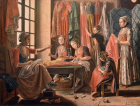
Female protagonists in early East India Company history
ArticleClick to view -

More than skin deep: unmasking the history of cold cream
ArticleClick to view -

Out and About: The historical significance of the Botanic Garden in Oxford
ArticleClick to view -

Real Lives: the long life of Old Tom Parr
ArticleClick to view -

Schools of Vice: how a medical scandal led to the dismantling of Britain’s last prison hulks
ArticleClick to view -

Out and About: Locating the Local Lockup
ArticleClick to view -

James Macpherson: a Scottish Robin Hood
ArticleClick to view -

Doing history: Manorial Court Records
ArticleClick to view -

Out and About in Lyme Regis
ArticleClick to view -

Charles I in objects and architecture
ArticleClick to view -

Piecing together the life and times of Charles I
ArticleClick to view -
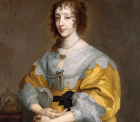
Caroline Court Women, 1625–1669
ArticleClick to view -

‘By his Majesties authoritie’: worship and religious policy in Caroline Britain and Ireland
ArticleClick to view -
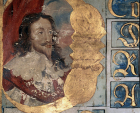
The nature of Charles I’s government
ArticleClick to view -

Update: Revisiting the Court of King Charles I
ArticleClick to view -

Virtual Branch Recording: The Fall of the English Republic
ArticleClick to view -
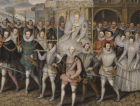
Virtual Branch Recording: The cultural world of Elizabethan England
ArticleClick to view -

Joan Vaux: a remarkable Tudor lady
ArticleClick to view -

Tudor queens: power, identity and gender
ArticleClick to view -
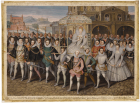
Elizabeth I: ‘less than a woman’?
ArticleClick to view

